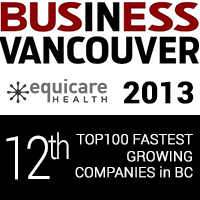Welcome Heather Krengel, Sales Manager, Southeastern USA
 logy to improve outcomes for patient. She will manage the Southeastern USA sales region, and we’re thrilled to have her on board.
logy to improve outcomes for patient. She will manage the Southeastern USA sales region, and we’re thrilled to have her on board.
In addition to her extensive professional and clinical qualifications, we also learned that Heather has experience in lawn maintenance and a sweet tooth for coconut cake – we think she’ll fit right in here. Get to know her here:
What was your first job?
Well there were no child labor laws back then…… I helped my brother mow grass and haul hay during a Mississippi summer (bad idea). He stiffed me a few times and I soon found that working in the local grocery store was much cooler!
What are you most proud of in your career so far?
My background is clinical Oncology. So definitely the fact that I have been able to help folks through some of the most difficult times in their lives with care, compassion, laughter, and grace. You can earn stripes on a resume, but nothing takes the place of holding the hand of a person who has reached the end stage of their life. Learning how to do that has given me a certain freedom in life.
What are you most looking forward to working on at Equicare?
I can’t wait to help educate cancer care sites on how to build strong successful navigation and survivorship programs that will serve them and their patients well for years to come. There is a clear, growing need for both of these right now, and folks need to know how it can be done well from the get-go.
What do you think of the state of the Healthcare IT industry and how it relates to oncology?
The Oncology industry is booming! With the aging of the “baby boomers” and even the generation that followed, we are starting to need more and more health care. Thankfully there are more choices in treatments and technologies and increasing numbers of places in which to be treated. Healthcare IT is absolutely vital in order to link technologies together with sites and services to help give the patient the most beneficial outcome. It’s not “one stop shopping” any longer. Healthcare IT must be able to connect various networks together in order to follow and track that patient for best practices and outcomes. I’m so thankful to represent one of the software companies that can do just that.
How have you seen technology improve the lives of those suffering from long term conditions or illnesses?
I am a huge believer in early detection! Whether it be through genetic testing, age appropriate examinations, or preventive care, we could not have seen the survivorship and wellness numbers expand the way they have over the last couple of decades without the advances in technology. I have seen adults that were diagnosed with colon cancer or breast cancer who were able to spare their children the same fate due to a simple blood test – that’s the kind of technology that I can get excited about.
What are you reading right now?
The Boys in the Boat
You need to go on holiday tomorrow- where would you go?
New Zealand. I hear the hiking and people are amazing.
What would you eat for your last meal on earth?
That one is easy, my mother’s homemade coconut cake. Probably the entire thing.
Want to get in touch with Heather to discuss your survivorship and navigation program needs (or just share your magic advice for managing a three year old)? Heather will be be happy to hear from you at heather.krengel@equicarehealth.com
